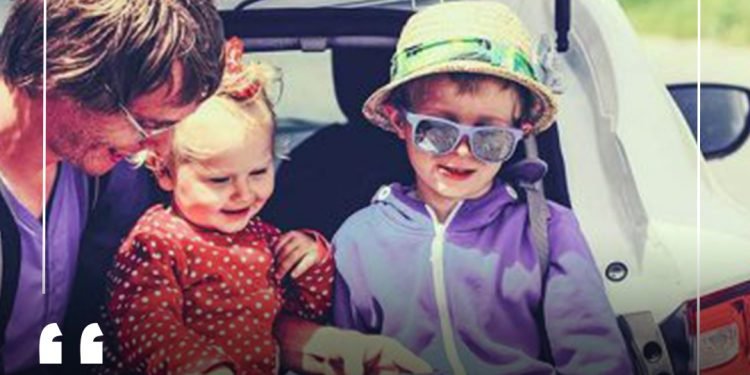Children love to explore and make discoveries. Their curiosity is often accompanied by falls, bites, scrapes and scratches. And that’s completely normal! That’s why most of us have medicine cabinets stocked with bandages, clamps, creams and ointments, ready to deal with the next scraped knee or splinter. But in the context of a trip, things are slightly different. To obtain advice on how to protect your health when travelling with children, always consult with travelling specialists. Take a look into the safety equipment in your car for your children. You must carry the best travel booster seat with you for the safety of the children. We have created this little health guide for travelling with babies.
1. Provide a medicine kit
We should always carry a medicine kit as we may not find what we are looking for once we reach our destination.
For example, some countries are allowed to sell drugs individually, out of their original packaging. It is therefore impossible to know its composition, ingredients or side effects. Also, some regions of the world have a reputation for holding counterfeit medicines, the integrity of which cannot be guaranteed. It is therefore preferable to buy your medication in Quebec, before leaving.
We also consult our pharmacist to put together our kit. He will be able to tell us if the drugs are suitable for young children, if they have any contraindications and if they can be combined with other substances.
THE PERFECT TRAVEL KIT
You should pack it in your hand luggage and it should contain:
Bandages that are water resistant, preferably
A pain reliever, such as ibuprofen (Advil, Motrin) or acetaminophen (Tylenol)
Antibiotics (prescribed by your doctor as a preventive measure and accompanied by their prescription)
Oral rehydration solutions (Gastrolyte type)
Diarrhea tablets
Antihistamines (against allergies)
Antibiotic ointment or ointment
Ear and eye drops (to treat conjunctivitis and swimmer’s ear)
Your personal medication, with a surplus in case of loss
A tweezer
A thermometer
2. Carry remedies for common ailments
If you or your child are the type to experience car sickness, take medication for motion sickness. Because who says travel says exploration, and who says exploration says bus ride on winding roads. If you’re planning to climb a mountain, get a prescription for acute mountain sickness medication ahead of time .
A few small products that take up little space in suitcases, but which can be of great help.
3. Drink plenty of water
We repeat it often, to the point where this advice to protect your health while travelling seems cliché. However, heatstroke and cases of dehydration are very common in hot countries. And since young children are particularly at risk, it is important to be extra careful. If the adult can force himself to drink water, it is different for toddlers. Often, the baby does not have access to its main source of liquid – milk – since it is not always pasteurized, and categorically refuses to drink water. So think about making your drink interesting by adding frozen mango cubes or quartered peaches, slices of cucumber or orange – which you will have previously peeled and cleaned yourself – or even a spoonful of natural fruit syrup (blackcurrant, blackberry, etc.).
4. Use sunscreen
Sunscreen is your best weapon against UV rays. If you spend the day outside, the cream should be reapplied every two hours. You must also systematically reapply the cream after swimming or after having practised an activity during which you have perspired. Be sure to dry your skin thoroughly before application, otherwise the cream will lose its effectiveness.
5. Avoid swimming in freshwater
If you’re the type who likes to swim somewhere other than a pool, nothing prevents you from doing so! The sea offers memorable bathing experiences that are out of the ordinary. However, avoid waterfalls, rivers and any pool of stagnant water, as fresh water can contain microorganisms (such as algae or other bacteria, viruses or parasites) that can cause health problems. .
6. Beware of watercraft
Safety standards are far from being identical from one country to another! Think of all those dubious boats by the sea or river in which you are invited to board… Often, these small boats or makeshift boats are in poor condition and without life jackets, which sets the stage for fatal accidents. . Better not to try the experiment.
7. Stay away from certain animals
Another tip for staying safe when travelling with children: stay away from potentially rabies-carrying animals, such as dogs, cats, monkeys and bats. Avoid all contact with these animals and, in the event of an incident, consult a doctor quickly.
8. Protect yourself from insects
Insects can also transmit diseases to humans: dengue fever , West Nile virus , Zika , chikungunya , malaria and Japanese encephalitis are some of the best known examples.




